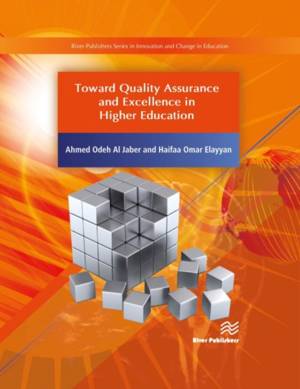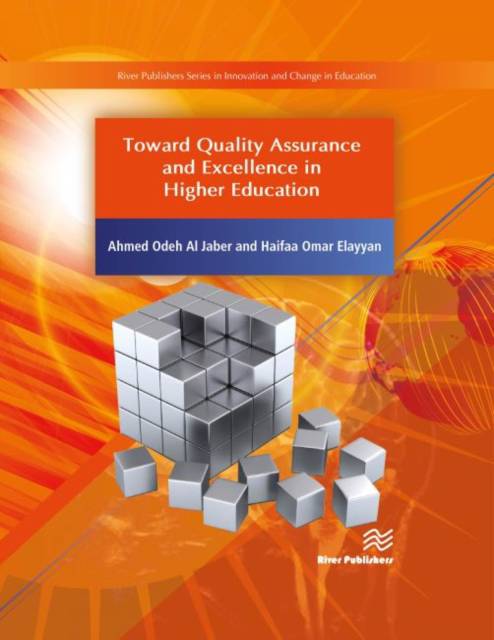
- Retrait gratuit dans votre magasin Club
- 7.000.000 titres dans notre catalogue
- Payer en toute sécurité
- Toujours un magasin près de chez vous
- Retrait gratuit dans votre magasin Club
- 7.000.000 titres dans notre catalogue
- Payer en toute sécurité
- Toujours un magasin près de chez vous
Toward Quality Assurance and Excellence in Higher Education
Ahmed Odeh Al JaberDescription
Quality Assurance is not a new concept in the education sector in general, and higher education in particular, though it is becoming increasingly more relevant and important. Higher education helps to improve an individual's quality of life by enabling them to inflate their knowledge and expertise, to grasp abstract concepts and theories, and to raise their awareness of the world and their community, and as such the assurance of quality is becoming more pivotal in the whole education process.
There is no simple definition of the concept of quality in education, though numerous models and theories have been devised. Toward Quality Assurance and Excellence of Higher Education is a new episode of the Quality Assurance perception in higher education, which identifies the quality culture and orientation from the beginning, integrating crucial factors to build a "pyramid" of higher education excellence. The book compares concepts from the main theories of Quality Assurance, management and control when they are applied to educational systems in higher education.
The book also presents a new model of excellence in higher education. Excellence is an architecture of building blocks that includes process performance, effectiveness, harmony and collaboration, and these bocks should be incorporated in a quality-oriented concept for sustainable excellence of higher education. The model integrates four main facets: the Educational System, Quality Assurance Managing and Control, Strategic Planning and Globalization. Also presented are international "best-practices" in quality assurance in higher education, from Japan and Finland.
Spécifications
Parties prenantes
- Auteur(s) :
- Editeur:
Contenu
- Nombre de pages :
- 450
- Langue:
- Anglais
- Collection :
Caractéristiques
- EAN:
- 9788793609556
- Date de parution :
- 15-08-18
- Format:
- Livre relié
- Format numérique:
- Genaaid
- Dimensions :
- 156 mm x 234 mm
- Poids :
- 802 g







